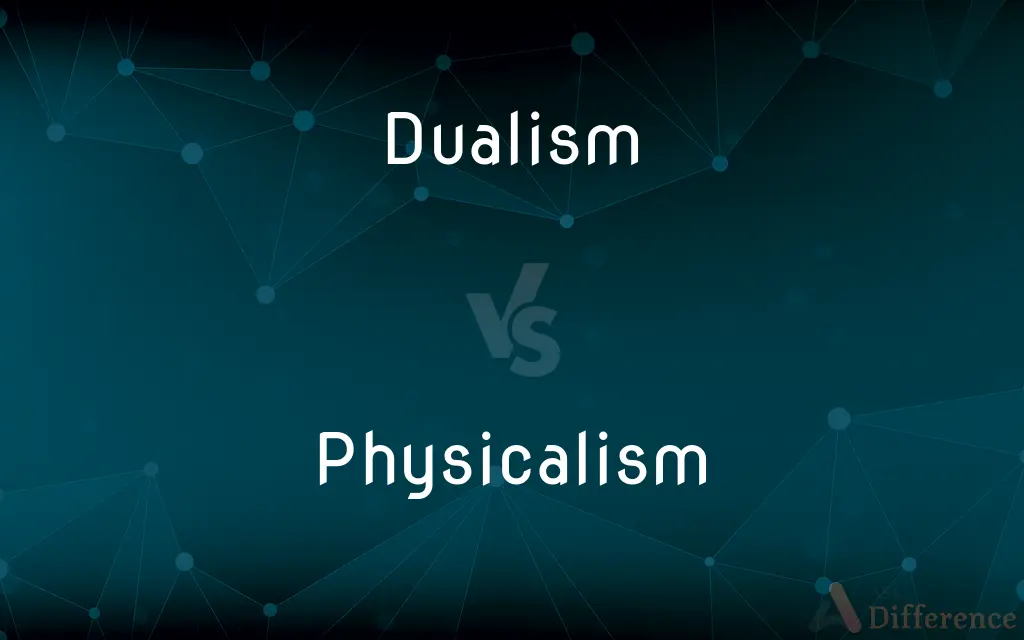Dualism vs. Physicalism — What's the Difference?

Difference Between Dualism and Physicalism
ADVERTISEMENT
Compare with Definitions
Dualism
The condition of being double; duality.
Physicalism
In philosophy, physicalism is the metaphysical thesis that "everything is physical", that there is "nothing over and above" the physical, or that everything supervenes on the physical. Physicalism is a form of ontological monism—a "one substance" view of the nature of reality as opposed to a "two-substance" (dualism) or "many-substance" (pluralism) view.
Dualism
(Philosophy) The view that the world consists of or is explicable as two fundamental entities, such as mind and matter.
Physicalism
The doctrine that all that exists is ultimately physical.
Dualism
(Psychology) The view that mental and physical properties are fundamentally different and that neither can be explained fully in terms of the other.
ADVERTISEMENT
Physicalism
(philosophy) A philosophical position holding that everything which exists is no more extensive than its physical properties; that is, that there are no kinds of things other than physical things, which all are of logically procedural nature, based on fundamental laws at their deepest level of causality.
Dualism
The concept that the world is ruled by the antagonistic forces of good and evil.
Physicalism
(philosophy) the philosophical theory that matter is the only reality
Dualism
The concept that humans have two basic natures, the physical and the spiritual.
Dualism
Duality; the condition of being double.
Dualism
(philosophy) The view that the world consists of, or is explicable in terms of, two fundamental principles, such as mind and matter or good and evil.
Dualism
(theology) The belief that the world is ruled by a pair of antagonistic forces, such as good and evil; the belief that man has two basic natures, the physical and the spiritual.
Dualism
The theory, originated by Lavoisier and developed by Berzelius, that all definite compounds are binary in their nature, and consist of two distinct constituents, themselves simple or complex, and having opposite chemical or electrical affinities.
Dualism
State of being dual or twofold; a twofold division; any system which is founded on a double principle, or a twofold distinction
An inevitable dualism bisects nature, so that each thing is a half, and suggests another thing to make it whole.
Dualism
The doctrine that reality consists of two basic opposing elements, often taken to be mind and matter (or mind and body), or good and evil
Share Your Discovery

Previous Comparison
Charity vs. Almsgiving
Next Comparison
Membranophone vs. Idiophone













































